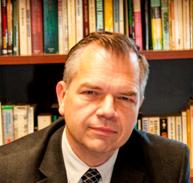BOOK REVIEW: Evangelicals Around the World: A Global Handbook for the 21st Century, edited by Stiller, Brian C., Johnson, Todd M, Stiller, Karen & Hutchinson, Mark. (Nashville, TN: Thomas Nelson, 2015).
Evangelicals Around the World has woven together the disparate threads, movements and people over 500 years of evangelicalism into a much-needed primer that skilfully explains evangelicals both to the world and to themselves.
Rounding up evangelicals makes herding cats look easy. Their constituent denominations have proliferated amoeba-like into myriad strains. The Reformation unleased evangelical freedom, chaos and energy, which has continued to this very day. Once the structure and hierarchy of the church was undermined during the Reformation, then every person was left to his own spiritual devices to understand Scripture.
The challenge for the editors of this book is to try to define and organize evangelicalism between two covers when it can hardly be defined and organized in real life. General Editor Brian Stiller states that the book “attempts to blaze a trail: to set out to provide definition as to who Evangelicals are.”(p. 5) This is no easy task.
Even the starting point is difficult. Is evangelicalism a movement? Is it a way of acting? Is it an emphasis? Or, is it an organization? One challenge with respect to the latter, for example, is that not all members of so-called evangelical churches may be evangelical. Further, there are members of so-called mainline non-evangelical churches who are evangelical. In short, even denominational delineations are suspect.
Another challenge to understanding evangelicals is that most would identify themselves religiously as something else first. They are likely to identify themselves as part of a local church community, rather than as an evangelical. They may eschew definitions as stereotypes and simply say they are Christ followers, members of a particular church, attend a home Bible Study group, and try to make an impact in their spheres of influence. An added element is that “evangelical” has pejorative connotations in Western society as it has become synonymous in some circles with strident, negative, anti-intellectual, triumphalist Christians.
One way to define evangelicals is by their beliefs. In a general way, evangelicals can be grouped by theological parameters. Some of the typical core beliefs of evangelicals include: emphasis on personal conversion; faith that is actively lived out; emphasis on biblical guidance in actions; focus on Christ’s teaching; and a priority on witnessing one’s faith to others. Yet, the deficiency of this approach is that the treatment of some important doctrine not included in the above core quintet—such as the emphasis on being Sprit-filled and speaking in tongues—varies widely throughout the evangelical spectrum.
Despite the challenges of this “massive undertaking”, as described by Stiller, the result has been worth the labour. The book covers many vital topics: who are evangelicals, what do they believe, evangelicals in mainline denominations, evangelicals and Catholics, gender, missions, politics, science and the environment. The book also covers a wide sweep of history from the Reformation to the present, various mission movements, revivals and preachers from DL Moody to Billy Graham. It’s a panoply of the influence of evangelicalism over the decades and centuries, from the Great Revivals of the past in the UK, the US and Canada and various great missionary movements
In addition to well-qualified general editors, the book is complemented by an array of distinguished contributors. Experts in their respective fields range from well-known author Ron Sider, author of Rich Christians in an Age of Hunger to leading marketplace theologian and co-author of Entrepreneurial Leadership, R. Paul Stevens, Professor Emeritus, Regent College, Vancouver.
By capturing the significance of evangelicalism over half a millennium it should be an encouragement to evangelicals to continue the good fight—and to do so with great collaboration. There is great need for unity among evangelicals in their respective countries and globally. They punch below their weight due to their disinterest in unified efforts. The book is a valuable first step in terms of defining evangelicals and their important historical role for themselves and to the broader community and to demonstrate their varied contributions to society. This book should serve as an inspiration to evangelicals as to how much greater their impact could be if they move from a personalized, local faith to one that is coordinated, defined and equipped to make a greater impact in our world.
